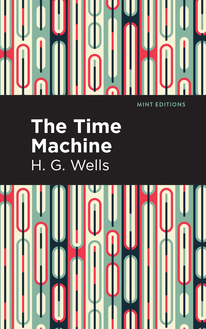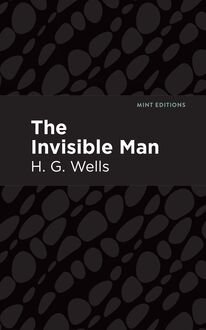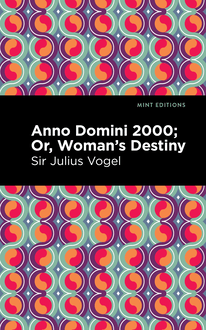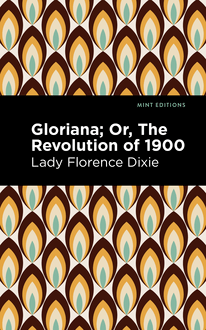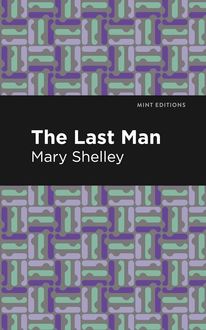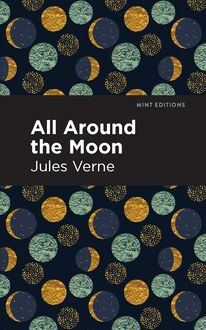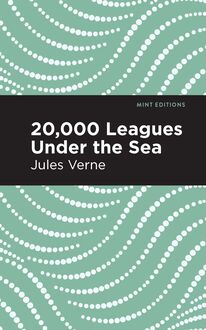-
 Univers
Univers
-
 Ebooks
Ebooks
-
 Livres audio
Livres audio
-
 Presse
Presse
-
 Podcasts
Podcasts
-
 BD
BD
-
 Documents
Documents
-
- Cours
- Révisions
- Ressources pédagogiques
- Sciences de l’éducation
- Manuels scolaires
- Langues
- Travaux de classe
- Annales de BEP
- Etudes supérieures
- Maternelle et primaire
- Fiches de lecture
- Orientation scolaire
- Méthodologie
- Corrigés de devoir
- Annales d’examens et concours
- Annales du bac
- Annales du brevet
- Rapports de stage
La lecture à portée de main
Vous pourrez modifier la taille du texte de cet ouvrage
Découvre YouScribe en t'inscrivant gratuitement
Je m'inscrisDécouvre YouScribe en t'inscrivant gratuitement
Je m'inscrisEn savoir plus
Vous pourrez modifier la taille du texte de cet ouvrage
En savoir plus

Description
Ionia: Land of Wise Men and Fair Women (1898) is a utopian novel by Alexander Craig. Published with illustrations by renowned German American artist J. C. Leyendecker, Ionia: Land of Wise Men and Fair Women is Craig’s only known novel. Noted for its blend of science fiction and political theory, Craig’s work is among the many novels of the late-nineteenth century to predict the future of air travel. Unlike other utopian tales of the time, however, the author’s vision of a perfect society is built on conservative values. It is also notable for its depiction of severe punishment and overall anti-Semitism. When London banker David Musgrave dies, he leaves his wife and young son a sizable fortune. While raising Alexander, Musgrave’s widow devoted herself to philanthropy in their village. Now a young man forging his own path in London, he learns of a newly discovered country in the Himalayas. Alongside his friend Jason Delphion, he travels by aircraft across the world to see Ionia for himself. There, he learns that the people of the valley descended from Greek mercenaries who fled to the Himalayas during the conquest of Persia by Alexander the Great. Isolated, they lived for centuries as farmers and soldiers until, returning from Europe, a prince brought knowledge of modern technology back to Ionia. From then on, their society flourished, surpassing by far any other in human history. With a beautifully designed cover and professionally typeset manuscript, this edition of Alexander Craig’s Ionia: Land of Wise Men and Fair Women is a classic work of utopian literature reimagined for modern readers.
Sujets
Informations
| Publié par | Mint Editions |
| Date de parution | 16 novembre 2021 |
| Nombre de lectures | 1 |
| EAN13 | 9781513293905 |
| Langue | English |
Informations légales : prix de location à la page 0,0500€. Cette information est donnée uniquement à titre indicatif conformément à la législation en vigueur.
Extrait
Ionia
Land of Wise Men and Fair Women
Alexander Craig
Ionia: Land of Wise Men and Fair Women was first published in 1898.
This edition published by Mint Editions 2021.
ISBN 9781513291055 | E-ISBN 9781513293905
Published by Mint Editions®
minteditionbooks.com
Publishing Director: Jennifer Newens
Design & Production: Rachel Lopez Metzger
Project Manager: Micaela Clark
Typesetting: Westchester Publishing Services
D EDICATED
T O
N AHUM E DWARD J ENNISON
In acknowledgment of
valued counsel and encouragement.
C ONTENTS A N OTE F ROM THE P UBLISHER I. A N E NGLISH V ILLAGE II. D ARKEST L ONDON III. A V ISITOR FROM A NOTHER W ORLD IV. A F AR C OUNTRY V. A MONGST N EW F RIENDS VI. A M ODEL C ITY VII. A D AY OF R EST VIII. T HE I ONIAN G AMES IX. T IMOLEON, THE L IBERATOR X. T IMOLEON, THE L EGISLATOR XI. T HE S CHOOLS OF I OLKOS XII. A M ODERN C RŒSUS XIII. L AST D AYS IN I ONIA XIV. C ONCLUSION
A N OTE F ROM THE P UBLISHER
W hile this is an exceptional and defining work of utopian fiction from the late nineteenth century, we would be remiss if we did not first call attention to the blatant anti-Semitism within the pages of this book.
We will present this text as it was originally published in 1898 because to do otherwise is to ignore that these prejudices did, and continue to, exist.
Mint Editions
Berkeley, CA
I A N E NGLISH V ILLAGE
T he village of Chingford, in Surrey, is one of the prettiest in all England. Situated in a rich agricultural district, three miles from the nearest railway station, it is undisturbed by the bustle of industrial and commercial life, but its little community of five hundred souls pass their lives in such peace and contentment as seldom falls to the lot of those living in more enterprising and ambitious places. Its rows of handsome cottages, surrounded by well-kept gardens, betoken a standard of comfort and taste much superior to the ordinary level of rustic existence. It boasts a fine old church with ivy-covered walls, and has two or three modern edifices which are its special pride. One of these is the schoolhouse, built of stone from the designs of a celebrated London architect; another is Wolverton Hall, a two-story building of brick, faced with stone, dedicated to the instruction and entertainment of the people. It contains a library and reading room on the ground floor, while the second forms a handsome hall for lectures, concerts and other meetings. Here the village literary society assembles on Saturday evenings and discusses high themes of state and philosophy, and although the provincial accent of some of the speakers might provoke a smile from the undergraduates of Oxford or Cambridge, it is wonderful how the faculty of expression has been developed amongst these simple villagers. Some of the younger men prove themselves able to take an intelligent grasp of practical questions and their discussions are at least a great advance upon the pothouse talk of their forefathers. They are well known to each other, and divided in friendly rivalry into various groups; the interest they take in the subjects discussed and the delight of victory to the side which wins most votes at the end of a debate, is sufficient to furnish them food for thought and entertainment during the whole of the following week. Without the use of the library the literary society never could have had an existence, and the stimulus which the latter gives to mental exertion is seen in the large proportion of readers of solid works on history, biography, political economy and social science which are to be found amongst these humble villagers. The reading room is well stocked with the best weeklies, monthly magazines and reviews, and not an evening passes but its tables are surrounded by earnest students of both sexes, young and old alike. This is more particularly the case, of course, during the long winter evenings. In summer there are outdoor games on the village common for the boys and young men, while beyond the brook at the lower end of the village is a beautiful park with lawn and shade trees, bowling greens and croquet grounds where the elder and less active of the people take their ease and recreation.
Nearly in the center of the village is the public laundry, free to all the families living in the place, and with a separate room fitted up with swings and cots for babies so that the women may bring their infants with them and not be hindered in their work. The laundry is also the public school of cookery, where, at the end of the week, when the family washings are all completed and out of the way, practical lessons in plain cooking are given free of cost to all who choose to come, and the resulting dishes furnish a weekly dinner or supper to the families of the pupils in rotation. At the opposite end of the village from the park is situated the parish church, and hard by is the rectory where the good old parson, Dr. Wolverton, has lived respected and admired by the whole community for nearly fifty years. Beyond the rectory is the Grange, a property of some fifty acres enclosed by high brick walls and containing a wood of fine beech trees and a spacious park dotted with rare old oaks, some of which began to grow in the time of the Tudors. A wide driveway winds through grove and park up to a handsome mansion dating from the reign of Queen Anne, but recently renovated and fitted up inside with all the devices which modern ideas of comfort demand. Here resides the lady bountiful of the parish, Mrs. Helen Musgrave, daughter of the old rector. She has been for many years a widow, and I am her only son.
My father, David Musgrave, was the younger son of a neighboring squire, and having but a younger son’s portion, he had been placed by his father in a London banking house, of which he became the head before he was thirty-five years old. Retiring at fifty with a large fortune, he had purchased the Grange and married the rector’s daughter, expecting to spend many years amongst the scenes of his youth, enjoying the wealth which the best part of his life had been spent in accumulating.
But man proposes and God disposes. My father had no sooner settled down to a life of ease and enjoyment than his health began to give way. He had never spared himself in business, working early and late to raise himself to the top of the ladder, and he succeeded, but his success cost him dearly. He had been possessed originally of a powerful physique, and in the pursuit of business scarcely ever allowed himself a holiday or any kind of recreation, and nature took her usual revenge. Overwork had worn him out, and when at last he sought to recover health and energy by repose and a return to his native air, it was too late. No medical skill could help him, and he died about four years after his marriage, and when I was too young to remember him.
With the exception of a few bequests to various relatives all the wealth which he had amassed fell to be divided between his wife and child. My mother became sole owner of the Grange, with other property to the value of about seven hundred and fifty thousand pounds, while a like amount fell to my share, and as it was invested in the best securities and was to be allowed to accumulate until I came of age, it was no ordinary fortune that awaited me. Although my mother was only four and twenty at her husband’s death, and very attractive in person and disposition, my father made no consideration as to remarriage in his will, and it was expected by all friends and neighbors that after a year or two of mourning she would make someother man happy in the possession of her hand and fortune, and after a time many a scion of the county families paid court to her, but she disappointed them all. She had made up her mind that her life was to be devoted to the bringing up of her son and to the improvement and happiness of the villagers amongst whom she had been born.
Chingford was then a very different place from what it afterwards became. The men were mostly agricultural laborers, whose wages were but scanty at the best, and a large proportion of them was spent at the two pot-houses which were the great curse of the village. The dwelling houses were in the last stages of dilapidation and decay; the women were slatternly and unkempt and the children for the most part ragged and vicious, given to robbing the henroosts and orchards of the neighboring farmers. The rector had labored earnestly amongst them, and had managed to induce a minority of the elders to attend church regularly on Sundays and their children to come to Sunday school, but as regards the majority he was in despair, and he often compared his parish to Nazareth, out of which nothing good could be expected to come.
It was therefore a difficult task which his daughter undertook when she resolved to make Chingford a model of industry and thrift, of cleanliness and respectability, but she set about the work with all the resolute determination of a high-souled Christian woman. She first bought up the two alehouses and demolished them, building a couple of neat cottages in their place. Next she built the schoolhouse and installed an energetic young man as teacher, with a couple of young lady assistants. There were plenty of scholars, for the place swarmed with children, and their mothers were glad to get them out of their way for the best part of the day. Evening classes were established for adults, which at first were rather thinly attended, but when the lady of the Grange went round to the cottages and personally entreated the attendance of the people who had grown up without schooling, none dared refuse the opportunity offered, and the teachers soon had their hands full. Very substantial prizes were offered to those heads of families who should make most progress in their studies. My mother announced that she had bought twenty acres of land adjoining the village on the west, which was to become the public common, wi
-
 Univers
Univers
-
 Ebooks
Ebooks
-
 Livres audio
Livres audio
-
 Presse
Presse
-
 Podcasts
Podcasts
-
 BD
BD
-
 Documents
Documents
-
Jeunesse
-
Littérature
-
Ressources professionnelles
-
Santé et bien-être
-
Savoirs
-
Education
-
Loisirs et hobbies
-
Art, musique et cinéma
-
Actualité et débat de société
-
Jeunesse
-
Littérature
-
Ressources professionnelles
-
Santé et bien-être
-
Savoirs
-
Education
-
Loisirs et hobbies
-
Art, musique et cinéma
-
Actualité et débat de société
-
Actualités
-
Lifestyle
-
Presse jeunesse
-
Presse professionnelle
-
Pratique
-
Presse sportive
-
Presse internationale
-
Culture & Médias
-
Action et Aventures
-
Science-fiction et Fantasy
-
Société
-
Jeunesse
-
Littérature
-
Ressources professionnelles
-
Santé et bien-être
-
Savoirs
-
Education
-
Loisirs et hobbies
-
Art, musique et cinéma
-
Actualité et débat de société
- Cours
- Révisions
- Ressources pédagogiques
- Sciences de l’éducation
- Manuels scolaires
- Langues
- Travaux de classe
- Annales de BEP
- Etudes supérieures
- Maternelle et primaire
- Fiches de lecture
- Orientation scolaire
- Méthodologie
- Corrigés de devoir
- Annales d’examens et concours
- Annales du bac
- Annales du brevet
- Rapports de stage
